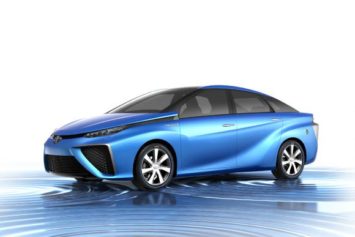Ulrich Hackenberg isn’t yet a household name but if Volkswagen’s $70 billion bet on his big idea pays off, he may join the likes of Henry Ford, Alfred Sloan and Taiichi Ohno in the canon of auto industry pioneers.
Since the heyday of Henry Ford and his Model T, the world’s automakers have considered the “global car” to be their Holy Grail – the same basic design that can be built, in subtle variations, and sold in different markets.
Take that fundamental concept, stretch it across many different vehicle types, sizes and brands, then build them by the millions, and you begin to sense the enormity of Volkswagen’s rapidly evolving “mega-platform” strategy and its potential impact on competitors around the globe.
Auto engineer Hackenberg nurtured this bright idea for three decades, after early pitches to auto executives were largely ignored, until somebody finally bought it wholesale. The man who bit was Volkswagen Chief Executive Officer Martin Winterkorn.
Hackenberg’s fundamental rethink of vehicle platforms, the industrial Lego from which cars are designed and made, is helping power the German company to the top of the global sales charts several years ahead of its 2018 target. It could also make VW one of the most profitable carmakers in the world.
The strategy is not without risk. It could, for instance, expose Volkswagen to the threat of a massive global recall if a single part, used in millions of cars, fails.
But rivals have taken note of the power behind its move. Volkswagen’s modular platforms are being benchmarked by most of the world’s top automakers, including Toyota Motor Corp. and Ford Motor Co., according to company executives.
“We’d be crazy not to,” said a senior Ford official, requesting anonymity because of the proprietary nature of the subject.
VW’s work on its largest mega-platform, known internally as MQB, began in earnest in 2007 and is being implemented over the next four years at a cost of nearly $70 billion, estimates Morgan Stanley. The potential payoff is compelling: Projected annual gross savings by 2019 of $19 billion, according to the bank, with gross margins approaching 10 percent.
The automaker is expected to announce a record profit for 2012 of more than $30 billion later this month (Feb. 22), according to Bernstein Research, whose senior analyst, Max Warburton, observes: “VW looks to have unstoppable momentum – in China, the U.S., Europe and most of the rest of the world”…
Read More: cnbc.com


